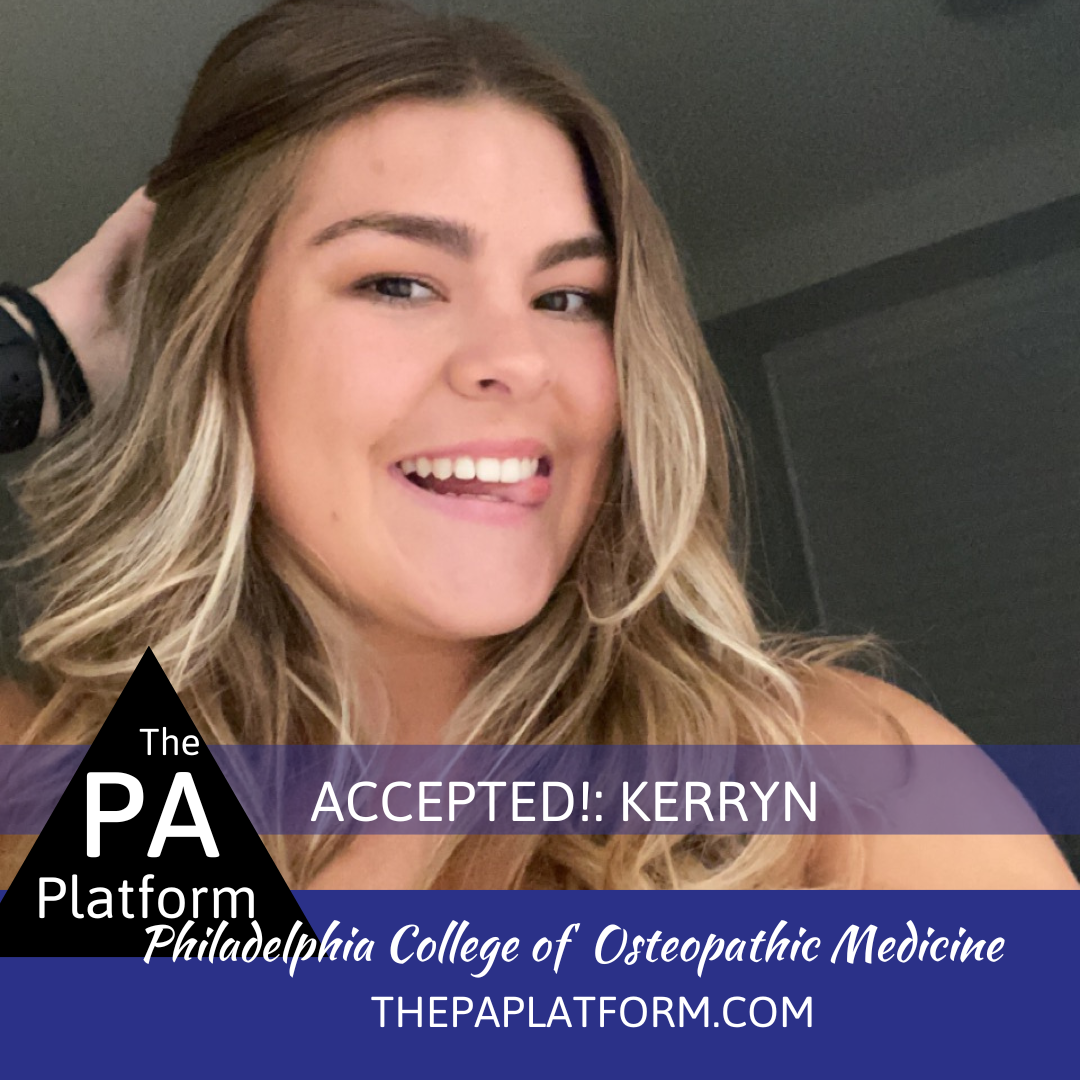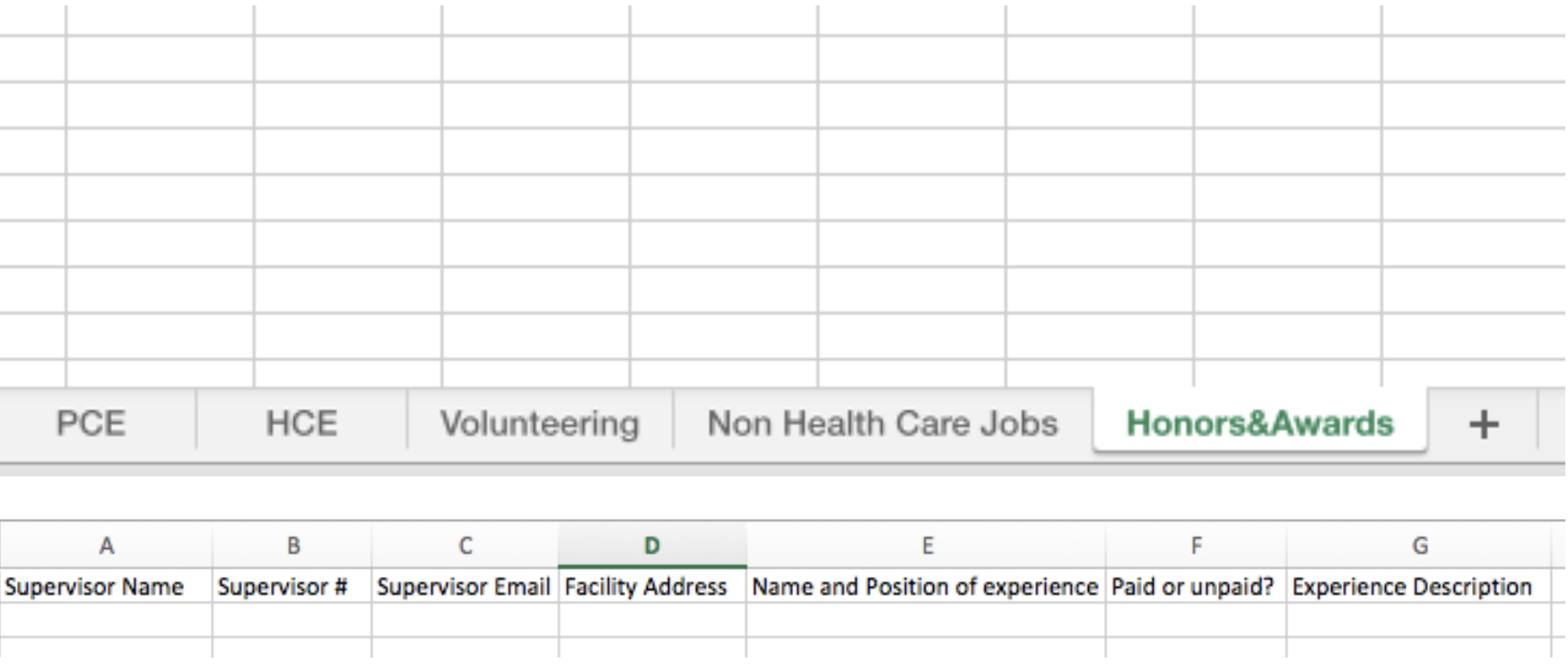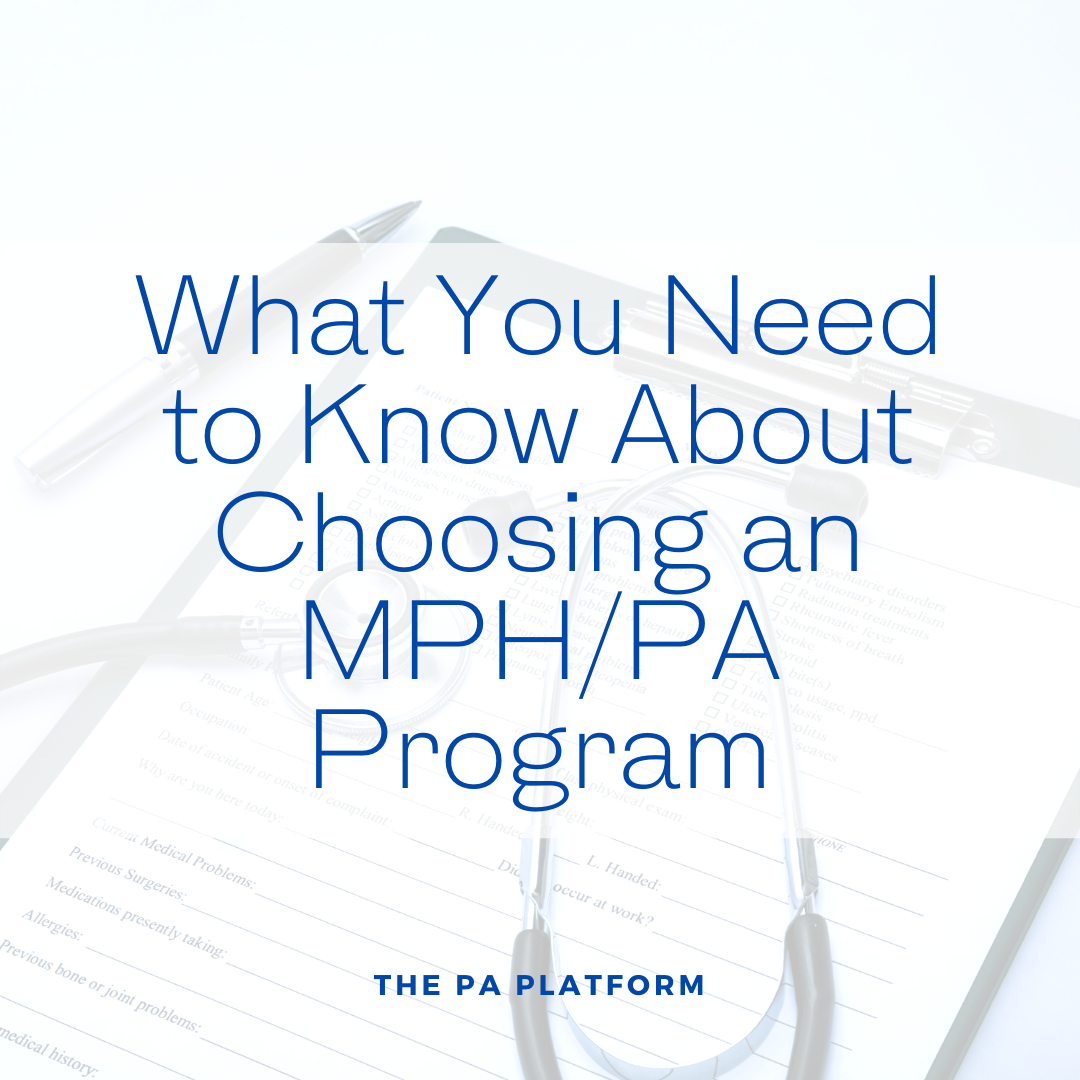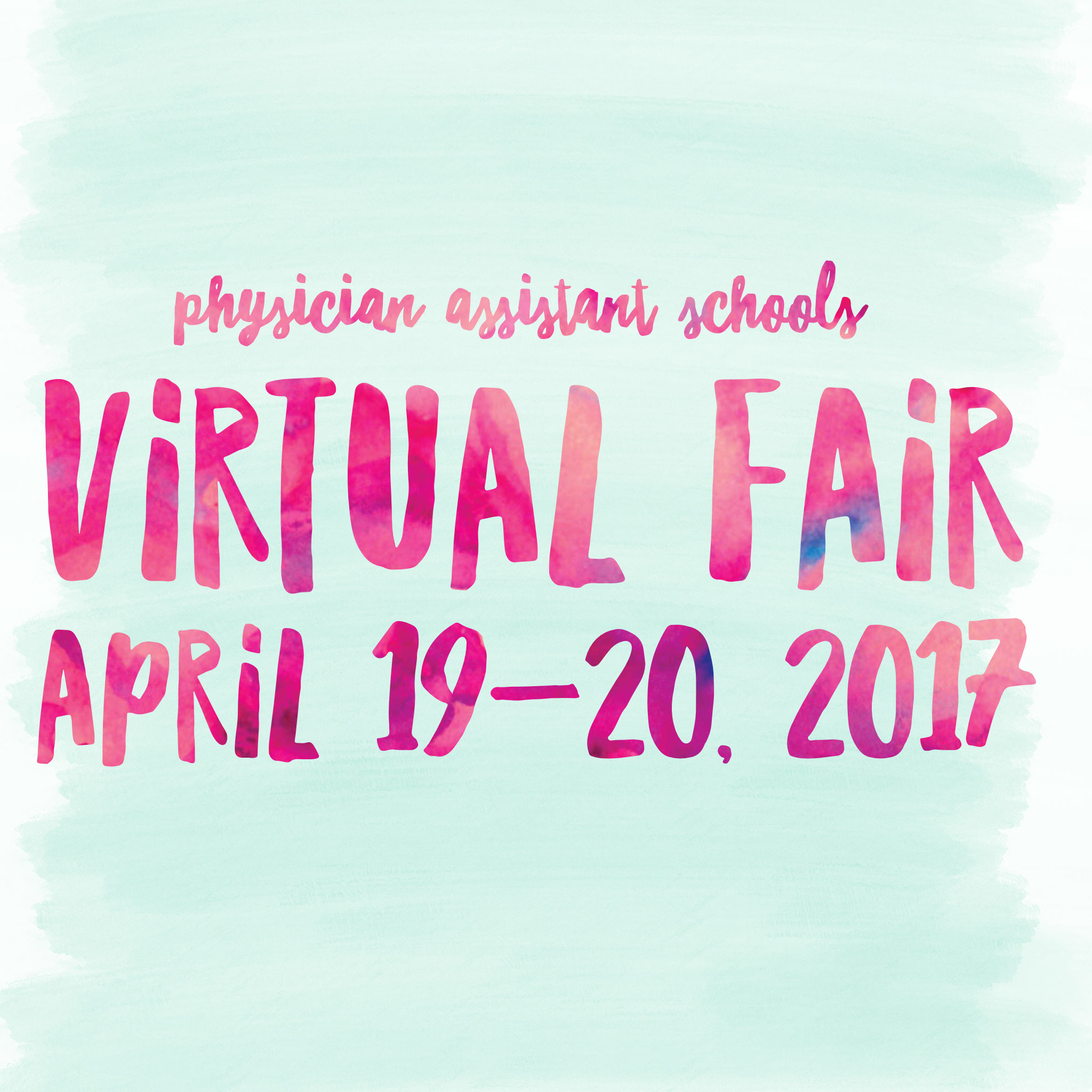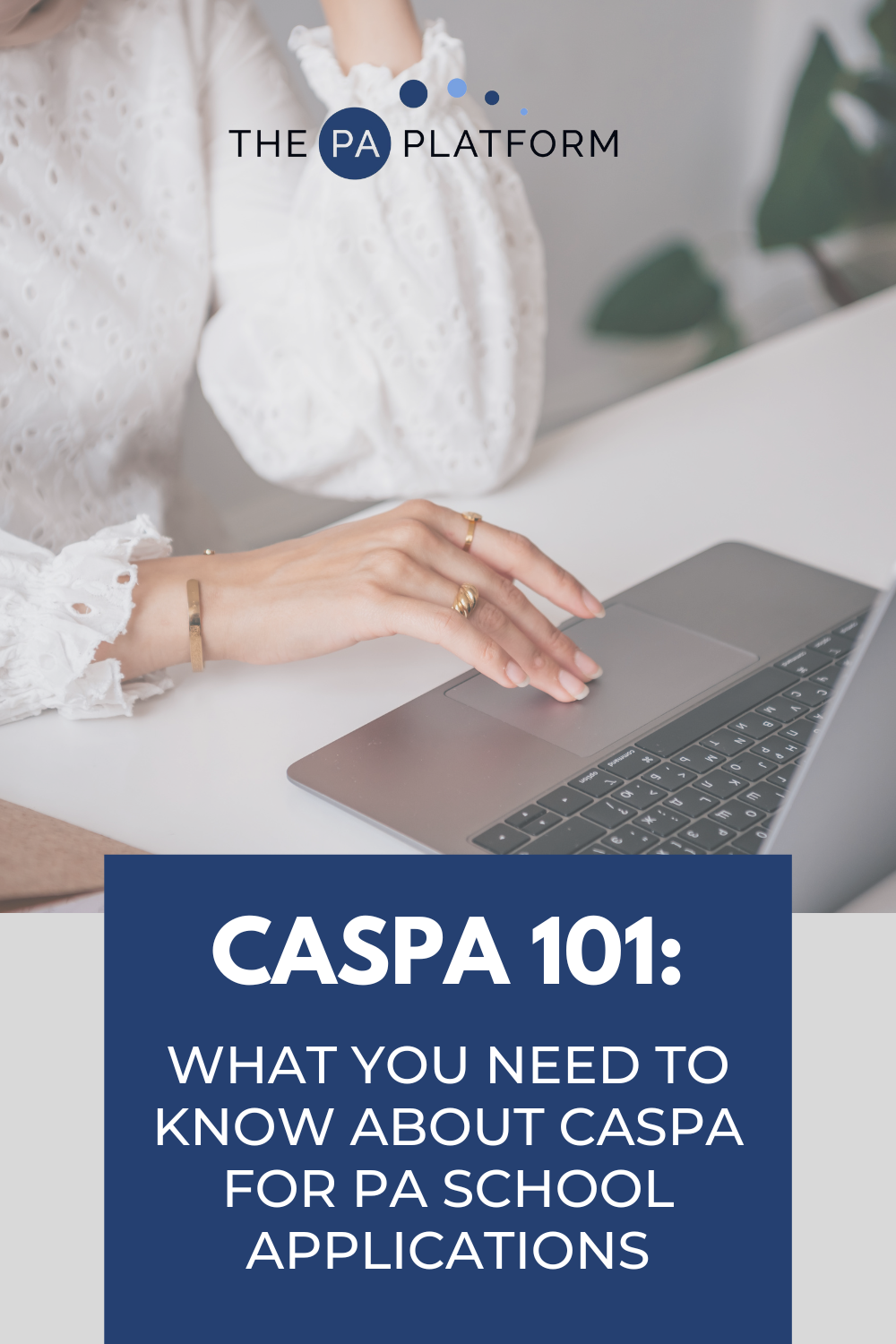This blog post was inspired by a presentation I did for a Pre-PA Club and there is an accompanying YouTube video you can watch here.
As an undergrad, you are in a great position to be a competitive PA school applicant even if you're applying this cycle because you still have some time to work on your application, and not feel like you're playing catch up. Even if this was a decision you made later on in your schooling or something you're still trying to decide, you can be taking steps to make sure that when you do apply (if and when) you'll be in a position to make yourself appealing to the admissions committee, and hopefully competitive against other applicants.
I applied for PA School in 2011 and it has become more and more competitive evert single year and I think that is because people are learning what a great career path it is and there are a lot more qualified applicants. It was competitive when I applied too which says a lot because that was 8 years ago and it’s definitely more competitive now. That being said, I am not trying to scare you! I just want you to know what you are getting yourself into.
Finding Resources
When I was applying to PA School, I felt like there was a huge lack of resources, which is why I started The PA Platform and the amount of resources available has improved some over the years. The process is very long and not straightforward so when I graduated, I started The PA Platform as a resource for those considering the PA career path and it has evolved from just a blog to have a bunch of coaches and a variety of services that has helped hundreds get into PA school. If you are new here, we have Accepted posts every Monday, blog posts every Tuesday, a new podcast episode and newsletter every Friday plus we have a Facebook group with over 8,000 pre-PAs too. We have all kinds of content just to spread the word about being a physician assistant and to help people figure out how to reach their goals a little bit easier and trying to answer some of those questions that applicants have. We offer some services like assessment and mock interviews. We have a PA Program Map that helps you see what programs are available across the US. We have three guidebooks to help you out — PA School Personal Statement Guide, PA School Interview Guide and The Pre-PA Workbook, all available on Amazon. We also have an interview course that supplements the interview guide as well.
Apply Early
My number one tip for just increasing your chances of acceptance, apply early. The sooner the better. This doesn't mean apply before you meet all the requirements, but when it comes time time and you decided this is the cycle I'm going to submit my application, get it in earlier than later. A lot of these schools do something called rolling admissions, you may be familiar with that but basically what that means is you submit your application as soon as it's complete they're going to review it. They're not going to wait for all 2,000 applications to get in and try to go through them all. They're gonna go through the 10 or 20 or 50 that came in that week. If they like, what they see, they will invite you for an interview. If they like what they see at the interview, they will offer you a spot. This can give you an advantage, because even if you are an extremely strong candidate, if you wait to apply it could get bumped because all the spots are taken. It's really important that you plan accordingly to get all your information in.
What's early? In my opinion I would say, shoot for May or June. I typically see people applying a little later than they had initially planned because the process of getting everything into CASPA, which is the universal application software, getting all your letters in, and making sure everything's good with your transcripts can take a little bit longer than you're expecting. If you shoot for a little bit early, hopefully you'll have an it in by that June/July mark, and that should be plenty early. That's not to say that if you apply in August or September that you wouldn't get accepted but if you're looking at increasing your chances, the earlier you can get your application in the better.
GPA
GPA is the next biggest thing. Grades are very very important for PA school. Being an undergrad, you're in a good position, especially if you have a few semesters left to work on this, and really maintain those grades and work on your GPA. Majority of programs will have a minimum requirement and the ones they point out most often are the Overall and the Science GPA. These typically range from 2.75 - 3.2. Now there are programs that will say they have no minimum, but that doesn't necessarily mean that they aren't still looking for a certain number. From what I've seen, just doing mock interviews for a while, and 3.0is the magic number if you can get even slightly above a 3.0, you're much more likely to get an interview and at that point it's an even playing field. With grades, it's a lot easier to lower your GPA, then, to increase it and you actually can't necessarily increase it. You basically start with a 4.0 and then go down from there. The minimums are non-negotiable if a school has a requirement and you do not meet that requirement, they will never see your application.
If you're, let's say of a 2.98, and the requirement is a 3.0, your application is going to get weeded out before the admissions committee can even look at it. You don't really want to waste your time or your money, applying to somewhere where you don't meet their requirements. The PAEA which is the Education Association for PAs, a while back this study, and they pointed out that GPA is the best predictor of how a student will perform in PA school. That's why schools look at this so closely. It can be tempting to try to rush everything and get all your hours, experience, and shadowing all at once. Don't let your grades sacrifice for trying to do all that. It's better to take a break, take a gap year, go a little bit slower than to try to rush and have your GPA suffer because it's hard to come back from that.
Healthcare and Patient Care Experience
WhenI applied there wasn’t even a difference between the two, they just said healthcare experience. I worked as a CNA for a summer, I did not have a ton of hours. Schools now will have no requirement to 500 - 1, 000 - 2,000 hours that they require. There's a differentiation now between health care and patient care experience. Healthcare experience means that you are in a healthcare setting, a medical setting, but you are not performing a job that is directly involved with the patient or directly related to their care. These types of jobs would be, being a transporter, a receptionist, a medical assistant who only does paperwork, scribe falls in between these (some schools consider healthcare some schools consider a patient care) just something where you're not necessarily hands on involved with that patient care. Now if you're putting your hand on a patient — you're taking vitals, you're drawing blood — that's patient care. This is when you are directly involved with their care so a CNA medical soon, working in the back, working with patients, EMT, paramedic, patient care tech, a lot of these are just titles and it comes down more to the roles and responsibilities. You have to look at what you're actually doing I get a lot of emails new. “This is my job title is it healthcare experience or patient care experience” but you really have to look at the actual job description to be able to tell which one it's going to fall under.
Volunteering and Shadowing
Volunteering and shadowing — these are more hours you've got to work towards getting, and with any of these experiences and with coursework. Some schools will be okay with you have these things in progress while some require you to have them complete by this time you apply, that's another requirement. You've got to look into to make sure that you are able to check that box before you apply to the school. Now the shadowing a lot of school will say, we prefer that you shower shadow or it's recommended. In my book, recommended is required. If something is recommended, you want to try your very best to get it done.
The importance of shadowing is being able to show that you have a good understanding of the PA profession and that you have really put in the time effort to understand what the job actually looks like. My rule of thumb, and this sounds like a lot, is 100 hours across three different specialties or settings so a total of 100 hours, and try to get different experiences. Schools do like to see that you've done some in primary care, but then look at other specialties, so dermatology, orthopedics, ER, GYN — anything and then, different settings, outpatient inpatient, surgical. Really trying to get that variety so you when you are working your essay your interview and say no I feel very confident that I've seen the variety of the PA profession and it's something that I want to be involved with.
With volunteering, schools are looking to see a commitment from you, to your community, and to the underserved populations over a period of time. It's great to do events here and there so you know soup kitchen or things you do with your sorority every once in a while, but it's better if you have something that you do periodically — weekly, monthly. When I was in college I was very involved with one of our campus ministries called the Wesley Foundation and that was a weekly commitment so in one year, I worked with have a big sister program with a girl from one of the underserved communities in Athens, Georgia. I worked with all different kinds of things while I was in college, I went on mission trips but you really want to show your compassion and that you're someone who likes to help people. It's one thing to say you want to work in medicine so you can help people and it's a different thing to show that you’re really actually enjoy helping people and that's why you’re doing this. Choose something you're passionate about, it doesn't have to be medical. The things I did in college weren't medical, they were just things I was interested in, with mentoring freshmen and mentoring students in the community. Find something and stick with it.
GRE
The GRE — so should you take the GRE? That’s always the first question. In my mind, yes, it depends on the programs you're applying to. If they don't require the GRE it's not going to matter, they don't care how you did on it. By taking the GRE it opens up more opportunities, it gives you more schools that you can apply to. For example, we will use the University of Georgia and the University of Tennessee. The University of Georgia, does not require the GRE. So, they are going to have 2,000 people apply, who did not take the GRE. If the University of Tennessee does require the GRE, they're going to have let's say 1,000 people find who took the GRE. Now those same thousand, who applied and took the GRE can still apply the UGA. It's a much bigger pool of applicants with schools that have less requirements. The more specific the requirements of the school, the less competition you'll have. If a school requires the GRE and you meet their requirements or you have this even somewhat competitive score because this really isn't that important, you're just giving yourself better chances. With the GRE, some schools will say what they want you to hit as far as scores, but you really want to shoot for a minimum of 300 total score, combine score between your quantitative and qualitative section and then a greater than the 50th percentile in each section. The writing portion really doesn’t matter so that's kind of arbitrary. These tend to be the numbers that schools are looking for.
Personal Statement
After you've met all the requirements, it's time to apply. The best thing you can do to secure an interview is have an amazing personal statement. I always say your personal statement is what gets you the interview, the interviews gets you accepted. You want to plan enough time to work on this. I usually recommend starting the January before you start applying in April. Right now, if you're in undergrad or not applying for a couple years, start a note. Write it down, make a note on your phone, start brainstorming. If you're at work and something interesting happens, go ahead and just make a note for yourself things that you may want to include, you may end up not including it, but it won't help you just have some ideas. On The PA Platform, if you go to www.thepaplatform.com/downloads we have Personal Statement brainstorming worksheets that kind of work you through kind of thinking through your experiences and focusing on the subjects and the topics that, when I edit an essay I'm looking for. When it comes to actually writing, I say just start writing. People get really hung up on trying to have an amazing intro, but that can come later. You don't necessarily have to have this huge dramatic story. When I read an essay I just want to hear your story. I will really want to know why you chose PA. Everything in your essay needs to relate back to this decision and how you came to this point. Get your ideas together, get your statement, then edit it. You should not have any grammar mistakes. The flow should be really good, and then get people's opinions — people who know you and professional opinions. This is really, really important so just make sure that your personal statement is as polished and strong as it can be.
Keep in mind also that it's 5,000 characters including spaces, which is about a page and a paragraph single space. It's not very much space to spill your life story, so you may have to elaborate on something supplementals and just keep things really really concise in your statement.
The Interview
All right, then the interview, which is my favorite part, which is also the most nerve wracking part, but interviews can be kind of fun! Here are some of the big questions to prepare for.
Going into the interview, they want to know about you. So tell me about yourself. Why do you want to be a PA? You should have a solid answer for that. It should be more than I like the flexible schedule or I don't want to go to med school. You should want the job, the daily roles and responsibilities that come with being a PA, the teamwork of cooperating with a supervising position. Really kind of think about the pivotal moments that got you to this point and then some soul searching about why this is the job that you want. Why do you want to go to this school, why you want to go here? There should be specific reasons that you apply to a certain school and shouldn't be completely random. What does a PA do? You need to be able to show your understanding which is where you're shadowing and work experiences come in.
For the whole process, specifically for interviews here are my takeaways: confidence is the one thing I see people lacking the most, and it can really affect performance in an interview. If you get invited for an interview you at some point, it's because the school is very interested in, they really wants to know about you and know more about you so that should in itself give you confidence. Always be positive, there's no reason to point out negatives. You can take something negative like I know a C in ochem and talk about how you learned how to study from it and kind of turn that into a positive thing. Some people will say “I know I don't have as much experience as everyone else or I'm not as old as everyone else”, and there's no reason to do that again they're interested in you and your unique and bring something to the table. Always be honest throughout this entire process, being dishonest can really bite you and lead to really getting dismissed from a program which is bead.
Throughout everything be completely honest you have to submit all your grades talk about all your experiences, if they asked the question about a strugglers and they usually be really honest about it. Be yourself. Sometimes people will try to say what they think the admissions committee wants to hear and you can tell, it comes off as very strange so just be yourself throughout the entire process. In an interview, specifically, be prepared for anything. I heard schools and do quizzes one areas I was that we had to draw a question out of a fishbowl and stand up and answer it in front of all the other applicants and the faculty and we had a minute to do so it was really strange. It was like a Miss America Pageant. It was very very stressful. You just have to go into it prepared and then make everything a story too, the more examples you can use in your essay and your interview, the more memorable you will be to the admissions committee.
Final Thoughts
All right, and then my final advice. Instead of just trying to meet minimum, which tends to be a common mindset. Try to think about it as not giving the admissions committee, any reason not to accept you. If you're looking at your application and you are looking at the weaknesses, work on those first it can be easy to say well you know I have this C in chemistry, but I have a lot of hours and I'm just going to keep getting hours. When you call that admissions committee and say why was not accepted, they're going to point out the C in chemistry. While different parts of your application can balance out, I think it's really important that you're looking at it as someone who is being very critical and can say, you know, I want when I call them, there's nothing they can tell me to improve on. Try think about like that.


